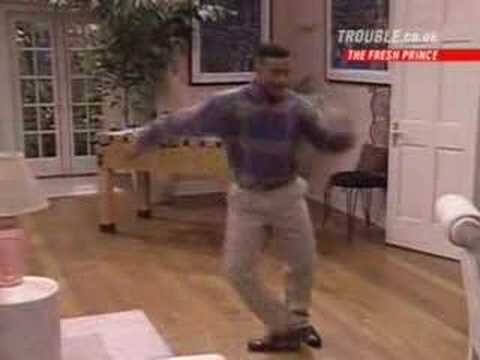Alfonso Ribeiro is suing Fortnite for copying his moves

Ah, the Carlton Dance: Simultaneously an indictment of The Fresh Prince Of Bel-Air’s endlessly lame, Tom Jones-worshiping Carlton Banks, and a tacit acknowledgement that his actor, Alfonso Ribeiro, actually had some significant swagger under all those high waisted khakis. The dance is an indelible part of the show’s comic mythology, right up there with tossing DJ Jazzy Jeff out a door, and that time everyone was way too excited to meet Donald Trump. And now, it’s also the subject of a lawsuit. A couple of them, even!
Ribeiro—who’s busted out those arm swinging, knee shaking moves fairly regularly over the years, including a long association with Dancing With The Stars—is now suing both 2K (publisher of the basketball game NBA 2K16) and Epic Games (owners of the ridiculously popular Fortnite) for including emotes or dances in their software that are very clearly copying his dance steps. Possibly sensing some rhythmic blood in the water, TMZ notes that this morning also saw the internet’s “Backpack Kid”—a.k.a., the 16-year-old creator of “flossing”—launch a similar suit against both companies on the same grounds.
Specific dances have been subject to copyright in the United States since The Copyright Act of 1976 went into effect, including “choreographic works” in its list of protected concepts. The question of who actually gets the copyright on said body movements, and the definitions of what, exactly, one is—like, does only human movement count? Or does a circus choreographer who works with elephants also have copyrightable work?—are way more complicated, though. Ribeiro is reportedly seeking the copyright on the Carlton Dance—which Fortnite is unashamedly selling to its users as the “Fresh” emote, the latest in a long line of instances of it appropriating popular dance moves for the delight of its murderous teen hordes—but it’s not clear if he’ll get it. The rules and spotty case law governing this stuff are all pretty complicated, but, in part, it’ll come down to whether he was serving as his own choreographer on The Fresh Prince, and whether his creation of the dance was work for hire (in which case, it would presumably rest with one of the show’s production companies), or his own separately owned intellectual property.
IP law: Isn’t it fun?